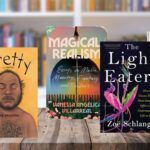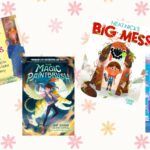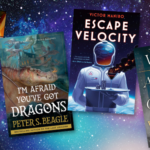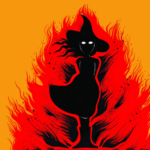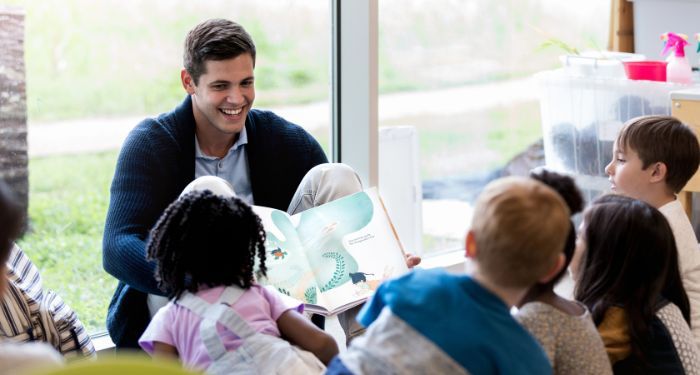
How Working in a Library Healed My Inner Child
“I saw the years of my life spaced along a road in the form of telephone poles threaded together by wires,” described Esther Greenwood in Sylvia Plath’s only novel, The Bell Jar. “I counted one, two, three…nineteen telephone poles, and then the wires dangled into space, and try as I would, I couldn’t see a single pole beyond the nineteenth.”
This is the only way I’ve ever known how to describe the early years of my young adulthood. Years later, I would be diagnosed with anxiety and obsessive-compulsive tendencies, which would ultimately explain the periods of depression I started experiencing at the forefront of my college years. It was never that I didn’t “know” what I wanted to do or be when I grew up. It was just lost in a sea of self-doubt and conflicting expectations, both external and internal, with a nice dollop of untreated mental illness on top. I wanted to be a writer and would eventually become a professional one. But I still couldn’t see a single pole beyond the nineteenth.
That’s the funny thing about being an English major, even if you have a support system that doesn’t have elitist concerns: we don’t necessarily graduate with bountiful job offers or even a sense of what we want to do with our degree. I was aware of this right out of high school, already doomsday-prepping for the moment when I would be on my own without a sense of who or what I was supposed to be.
Time passed, and I began to figure it out, but sadly, the writing work I had acquired during my university years was not enough income to sustain me post-graduation. And when you’re generally not a patient person, continuing to work a few piddly shifts a week in retail while writing on the side is enough to make you have a depressive episode while watching the last six episodes of Felicity in your childhood bedroom. (True story.) But then my luck changed: after relentlessly applying and calling people I had no business contacting, I got hired full-time at my longtime happy place — my local library.
Six years ago, I would have never wanted to work at my library. Not because I didn’t like it there, quite the opposite. The public library was the only place that saved me from losing the last grip of my sanity during my post-secondary studies. Rather than study there, it was the place I came to because, in an increasingly anxious mind and world, it was the only place I found peace. I truly believed that nothing bad can ever happen to you in a library. I still do. (Within reason.)
But after taking back control of my life from my mental illness, I was fully prepared to work in a place where I would be handling books all day. My local library has two branches, a central one and a much smaller one in a heritage building just down the street from where I grew up. Before I ever visited the “big library” and started cocooning myself there in high school, the smaller branch was the only library I’d ever gone to. I went to story hour there, I was tutored there, and it was ultimately the place I became a reader.
When I started having hours at the smaller library, I was excited just because of its personal significance that I was already aware of. But I was nowhere near prepared for the waves of nostalgia that would hit me once I’d settled in, especially when the head librarian asked me if I was interested in making a children’s book display. I’m not good with kids as a grownup, probably because I still feel like one a bit. But as legendary children’s book editor Ursula Nordstrom put it, “Well, I am a former child, and I haven’t forgotten a thing.” Precisely that. The head librarian had no idea what kind of power she was putting in my hands, especially when kids and their parents started bringing the books I’d selected to the counter for me to take out. Tissue, please! I now need tissue.
Of course, it’s most likely the same sentiment for bookstore employees who have their staff picks sold, but this went deeper for me. To get to make displays of picture books for children at the very place that taught me to love books, where I used to take out books to read with my parents at bedtime, felt immensely satisfying in a way I’d never experienced before. It went beyond satisfaction and became healing.
It’s basically a social media cliché at this point that people in their 20s, especially in the digital age, are in the process of reparenting themselves and healing their inner child, if you will. This process is somewhat necessary for everyone, especially those who might’ve grown up in unstable or violent environments. It’s also incredibly necessary for queer people, for kids who grew up hiding what they really wanted in fear of judgment from their parents or friends. Which is why I wasted no time in putting out on display every fairytale princess picture book I could find because Disney princesses were definitely something I consumed in private growing up. But no longer.
As if this wasn’t already a wholesome healing experience, then it came time to heal the young adult still inside of me. The one who knew what he wanted but was still too afraid to go after it, scared by the vast task of becoming himself. The one who started going after it but still found that it didn’t stop making him anxious or depressed — only being put on medication and getting a mental health diagnosis in light of a continuously devastating pandemic helped that. It was time to forgive him for the things he didn’t know at the time. It was time to let him know that he did the best he could do with what he was given and to let him know that was enough.
A full-time work schedule is, as I’m learning, quite demanding and doesn’t always leave that much time for emotional homework, let alone much else. But there are still those quiet moments during my shifts at the smaller, quieter library, where I’ve begun forgiving myself for all the pressure I put on myself to succeed and achieve at a rate that wasn’t humanly possible. All I’ve ever wanted was a moment where I could exhale and think, “OK, I’ve made it,” without ever defining what “making it” actually looks like. All I know is this: I love books and reading, and I now have a job where I get to nurse those passions in many ways, with still some time left over to pursue my writing. I also know now that no feeling is final, and so I soldier on.






